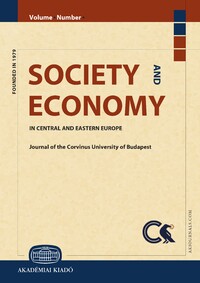The state of green energy transition in regional industrial centres—The case study of Székesfehérvár
The state of green energy transition in regional industrial centres—The case study of Székesfehérvár
Author(s): András Márton, Zsófia Nemes, Márton PétiSubject(s): Energy and Environmental Studies, Socio-Economic Research
Published by: Akadémiai Kiadó
Keywords: renewable energy; sustainability; industrial park; public-private cooperation; networking
Summary/Abstract: Industrial parks may be high pollutants of the local environment, but also engines of regional development, employment, and economic value added. To make them more sustainable, regional planning often purports to promote a transition to a greener approach, but in reality, many green measures oppose business logic and profitability, while those companies that do invest in sustainable solutions do so without having a clear strategy. This complicated setup is to be explored and modelled in this article which is focused on a remarkable area, the urban region of Székesfehérvár, an industrial city in Hungary having an impressive economic development and hosting significant domestic and international companies. The disharmony between greening policies, intentions and actions is observable in Székesfehérvár, despite the considerable local and regional potentials of renewable energy resources. Findings indicate that systemic thinking and future-oriented decision making will be necessary to achieve true sustainability, which also requires a mutually proactive attitude and the cooperation of different sectors. A legitimate strategy aiming at greening the local and regional economy (with renewable energy concerns), implemented by both public and business actors can be the key element of a successful transition. This strategy needs to be stimulated by local governance.
Journal: Society and Economy. In Central and Eastern Europe ǀ Journal of the Corvinus University of Budapest
- Issue Year: 44/2022
- Issue No: 1
- Page Range: 119-137
- Page Count: 19
- Language: English

